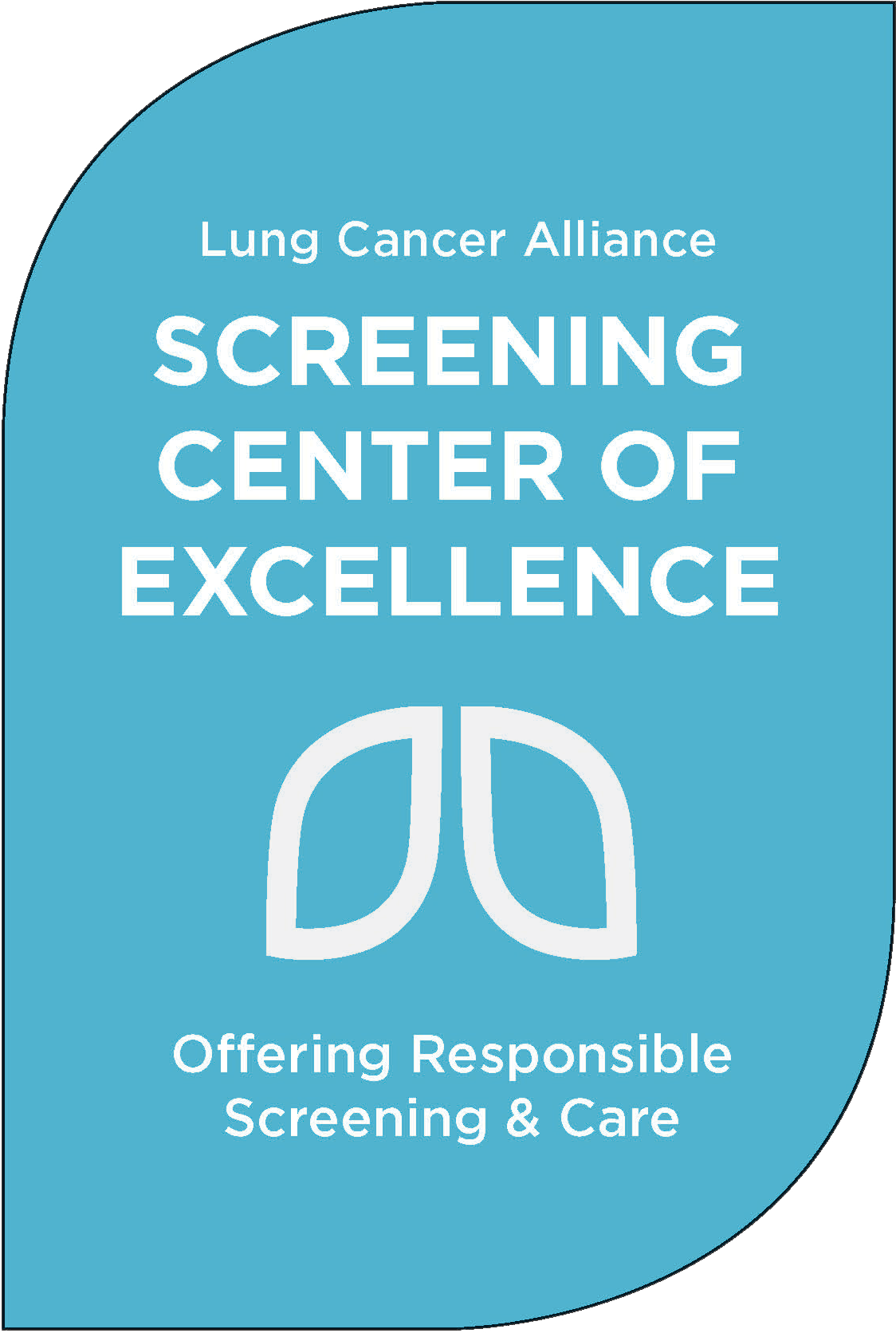Lung cancer is one of the most common cancers in the world. Often the disease does not show symptoms until it has progressed to advanced stages, when it is difficult to treat and chances of survival decrease.
A low-radiation-dose CT (LDCT) scan can detect lung cancer at its earliest stages, making treatment both easier and more effective—and early detection is the key to beating any cancer. Such screening is only appropriate for people who may be at higher risk for lung cancer due to their history of smoking.
An LDCT scan of the chest to screen for lung cancer is like a mammography screening for breast cancer. Both can detect cancer in its early stages and save lives. In a reported study, LDCT lung cancer screening has been shown to reduce lung cancer deaths by 20-33% in high-risk populations. It is estimated that following government screening guidelines could save an additional 10,000 to 20,000 lives each year.
Should You Be Screened?
People with a history of cigarette smoking have a high risk of lung cancer. In fact, tobacco use accounts for almost 90% of all lung cancers. The more cigarettes you smoke per day and the earlier you started smoking, the greater your risk of lung cancer.
Not everyone should be screened for lung cancer. Government guidelines, updated in 2022, recommend a lung cancer screening if you meet the following criteria:
1. You are between 50 and 77 years old.
2. Have a smoking history of at least “20 pack-years”. Calculate your “Pack Years” smoking history.
Examples:
- Smoked a pack of cigarettes a day for 20 years
- Smoked 2 packs a day for 10 years
3. You are a current Smoker, or have quit within the last 15 years.
Next Steps if you meet the criteria above:
4. You will need to talk with your doctor to decide if screening is right for you.
5. A doctor’s order is required to be scheduled for screening.
Questions? We’re here for you
Our Lung Cancer Screening Program Nurse Navigators are here to answer your questions about lung screening. Your navigator can also help set up appointments and answer any other questions you might have. Contact a Nurse Navigator at 855-399-LUNG (5864).
Designated LCA Screening Center of Excellence

The Missouri Baptist Lung Cancer Screening Program has been named a Screening Center of Excellence by the Lung Cancer Alliance (LCA). Designated LCA Screening Centers of Excellence are committed to provide clear information based on current evidence on who is a candidate for lung cancer screening, and to comply with comprehensive standards based on best practices developed by professional organizations, such as the American College of Radiology (ACR), the National Comprehensive Cancer Network (NCCN).
Screening Locations
The Missouri Baptist Lung Cancer Screening Program schedules screenings at five locations around the St. Louis area:
- Missouri Baptist Medical Center – Main Campus in Town & Country
- Missouri Baptist Outpatient Center – Sunset Hills
- Parkland Health Center – Farmington, Missouri
- Missouri Baptist Sullivan Hospital – Sullivan, Missouri
- Memorial Hospital Chester – Chester, Illinois
How is the lung cancer screening performed?
The screening test is performed with a low-radiation-dose CT (LDCT). LDCT scans have a lower radiation dose than a chest X-ray or a standard CT scan. The LDCT scanner rotates around your body, while you lie still on a table that passes through the center of the scanner. The LDCT scan provides detailed images of the inside of your body, including tissues within an organ.
How long does the screening take?
Each exam takes only about five minutes, and we strive to have you in and out in less than an hour.
How much will the screening cost?
The Missouri Baptist Lung Cancer Screening Program is covered by most private insurance plans, Medicare and Medicaid. Patients must have a shared decision-making visit with a medical provider prior to their lung cancer screening test. Check with your provider, or call our Nurse Navigator at 855-399-LUNG (5864) for assistance.
How quickly will I receive my results?
We’ll call you with your results on the next business day.
What happens if the test finds an abnormality?
If an abnormality is found, it does not necessarily mean that you have cancer. Small nodules and other abnormalities are found in about 1 in 5 LDCT scans. Most of these do not turn out to be cancer. You may require additional testing (which is covered by Medicare, Medicaid and most insurances). A member of your Missouri Baptist care team will discuss your next steps with you and answer any questions you may have.
What happens if cancer is found?
If cancer is found, a member of your Missouri Baptist care team will work with you and your physician on a treatment plan.
Cancer Care at Missouri Baptist
You’ll want the very latest in treatment options, the best trained professionals including a team of top doctors, and the most advanced cancer-fighting technology. The Cancer Center at Missouri Baptist combines these critical components in a location designed by doctors, nurses and cancer patients. That’s because decades of experience have taught us that comfort and compassion are just as important as the science of medicine.
Schedule an Appointment
To find out more about lung cancer screening or to schedule an appointment, contact a Missouri Baptist Lung Cancer Screening Program Nurse Navigator at 855-399-LUNG (5864). A navigator will guide you through the process and answer any questions you might have.